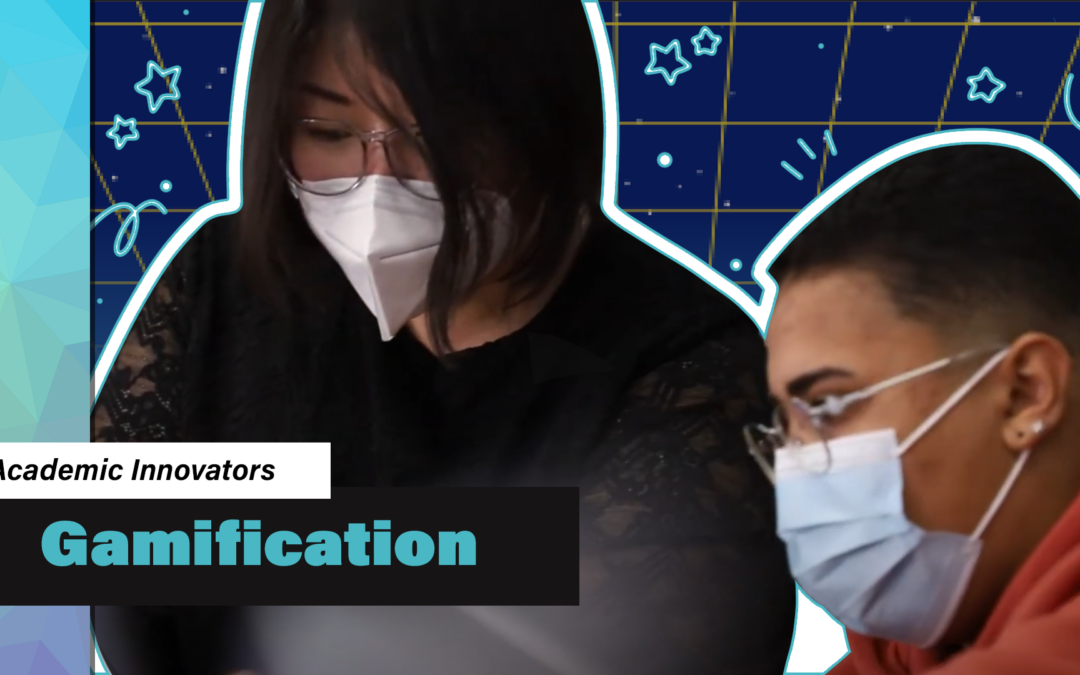Alicia Baumann and Haolin Zhu, Senior Lecturers at the Ira A. Fulton Schools of Engineering, have implemented gamification elements into their engineering courses. Baumann and Zhu added challenges throughout the semester and in different media forms to engage their students’ own learning and motivate them to master course concepts. Completing challenges allowed students to earn tokens and exchange for rewards, such as a one day extension on an assignment.
Both Baumann and Zhu launched changes in their courses in spring 2021. Baumann implemented CSE120 Digital Design Fundamentals (also referred to as Digital Logic Design) for first year students. Zhu added gaming elements to her MEE342 Principles of Mechanical Design, a core upper division technical class.
Gamification is the use of game-based techniques and strategies found commonly in video games to promote learning through increasing engagement and motivation while supporting student learning [1]. These gaming elements include competitive challenges, reward points, and leaderboards.
Zhu shared, “The types of challenges that I incorporated in the course were meant to help students better learn materials or to get clarification on some of the muddiest points. Or to help each other and form this positive and supportive community of learning.” A challenge in Zhu’s course included allowing a student to record themselves teaching a concept for their peers on a topic that is commonly misunderstood, also known as “muddiest points.” This not only helped her students to learn concepts by teaching it themselves, but also increased peer-peer interactions in Zhu’s upper division course.
Baumann wanted to motivate her first year students to practice problems – a challenge she added in her course was extra practice problems. Benefits that have been found with gamification are increased student motivation and improved engagement in course content [2, 3].
Baumann explained, “This is something where you can definitely get the whole class involved. It was fun to see what kind of stuff they wanted to start seeing… trends that would be happening just in everyday life.” Baumann shared that when she implemented in her course the GameStop stock explosion was hitting headlines. Her teaching assistants played a vital role in considering student perceptions and incorporating real-world context into the curriculum. “So let’s take what they’re already talking about and we’ll make challenges into it and wrap it into the engineering courses.”
Baumann and Zhu administered surveys and conducted focus group discussions with students to evaluate the gamification impact. The results they found were overwhelmingly positive – the increased student motivation based on situational motivation scales in the survey and focus groups participants reported that the challenges were a fun way to engage with the course materials. In the future, the pair hopes to minimize the manual tracking efforts that maintaining tokens and the rewards shop requires.
To learn more about the impact of gamification through the demographics of school year, gender identity, and academic performance, as well as understand the motivational impact of gamification, please read their upcoming ASEE 2022 paper titled, “Impact of Gamification on Student Motivation and Success – Insights Gained from Freshman and Junior Level Technical Courses.”
This article and video are part of a new faculty spotlight series, Academic Innovators, that provides recognition and insight for the inspirational work and research being done in the FSE community. Please consider nominating a faculty member to be featured.
References
[1] Landers, R. N., & Landers, A. K. (2014). An empirical test of the theory of gamified learning: The effect of leaderboards on time-on-task and academic performance. Simulation & Gaming, 45(6), 769-785.
[2] Ortiz‐Rojas, M., Chiluiza, K., & Valcke, M. (2019). Gamification through leaderboards: An empirical study in engineering education. Computer Applications in Engineering Education, 27(4), 777-788.
[3] Brown, M. G., Lamm, M. H., & Nadolny, L. (2021, July). Gamification of Chemical Engineering Pathways: Evidence from Introductory Courses. In 2021 ASEE Virtual Annual Conference Content Access.
